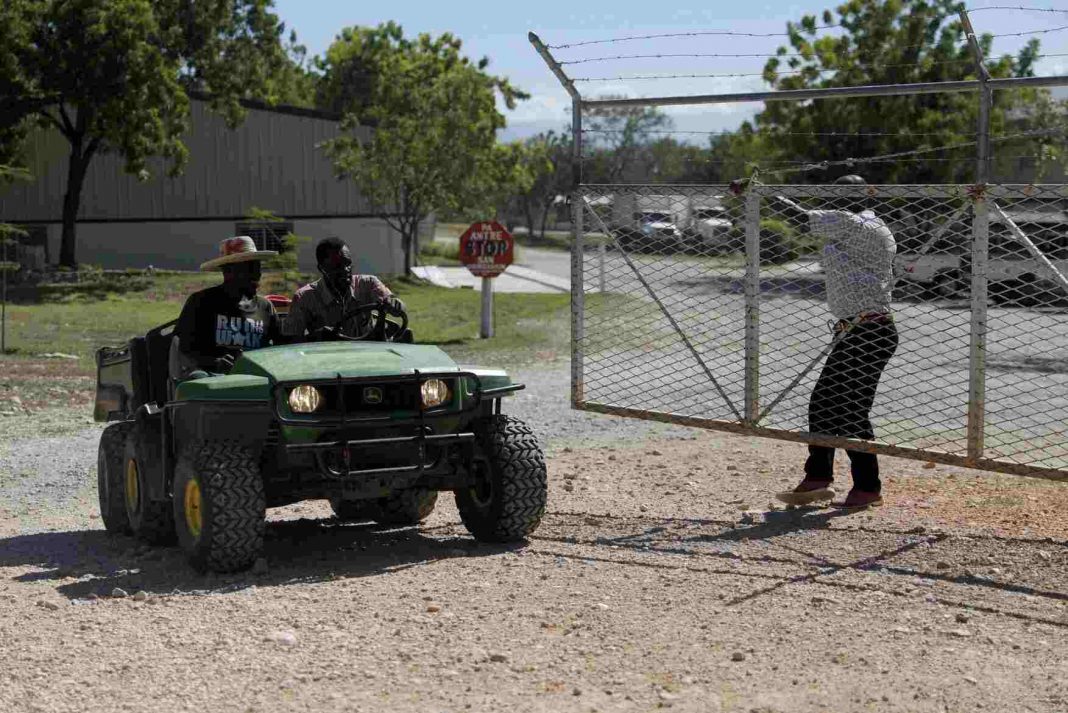Their U.S.-based organisation and the Haitian national police announced on Thursday that the last 12 members of a group of 17 North American missionaries who were abducted in Haiti two months ago had been freed.
According to a statement released by Christian Aid Ministries, a group located in Ohio, “all seventeen of our loved ones are now safe.” The organisation did not provide any other information on the victims. At this time, it is not known if a ransom has been paid, or what the physical circumstances of the hostages are.
In Haiti, where 11 million people live in a Caribbean country coping with a worsening political and economic crises as well as the aftermath of a devastating earthquake, the kidnapping serves as a reminder of the strength of criminal gangs.
Five of the hostages had previously been released, however nothing was known about the conditions of their release at the time. The others were discovered on Thursday in an outlying neighbourhood of Port-au-Prince, the country’s capital, according to local media sources. A representative for the Haitian police acknowledged the release, but did not provide any information.
According to one of the relatives who spoke on the condition of anonymity in order to protect the missionaries’ safety, the 12 freed captives were due to leave to Miami on Thursday afternoon, according to the missionaries’ schedule. The United States Embassy in Haiti did not respond to a request for comment on the news of their release.
Following the killing of President Jovenel Mose in July, gangs have progressively taken over additional portions of the capital, essentially capturing control of all overland supply routes into and out of the city. Gang violence has further exacerbated Haiti’s already terrible economic situation, putting supplies of gasoline, medical equipment, and other necessary products in the capital at the mercy of gang leaders who have taken control of the city.
Prime Minister Ariel Henry and the heads of many major Haitian political parties have said that the country would not be able to organise free and fair elections to replace Mr. Mose until the police retake control of the capital from gang-controlled areas. In the meanwhile, several police units have been implicated in Mr. Moses murder, further eroding public faith in Haiti’s already-weak security services and hindering the fight against organised crime in that country.
Following Mr. Mose’s assassination, Haiti’s caretaker government requested military aid from the United States to protect crucial infrastructure. However, the request was quickly turned down by the White House. The United States has a long and complicated history of intervening militarily in Haiti.
According to the U.S. Treasury Department and diplomats in the nation, Haitian politicians have been funding gangs for years in order to utilise them as paramilitary groups capable of terrorising opponents and igniting political upheaval for years. Because of the disintegration of central authority in the aftermath of Mr. Moses’ death, gangs took over and rose to ever higher levels of political importance, until they were no longer needed.
During a memorial ceremony for Mr. Mose held in July in downtown Port-au-Prince, one gang boss, Jimmy Cherizier, also known as Barbeque, marched with his entourage dressed in white suits without encountering any opposition from authorities.
Kidnapping has become more popular among gangs as a means of raising funds, with some targeting even youngsters going to school and pastors conducting sermons.
In addition to conducting numerous kidnappings, the 400 Mawozo gang is well-known for demanding ransoms of $1 million per person for the Christian Aid Ministries hostages. However, the ransom demand was largely seen as only the beginning point for discussions.
Mawozo’s leader, Wilson Joseph, claimed in a video posted on social media in late October that if he didn’t obtain what he needed from the Americans, he would rather murder them all. The video was revealed after police killed five of the gang’s members.

